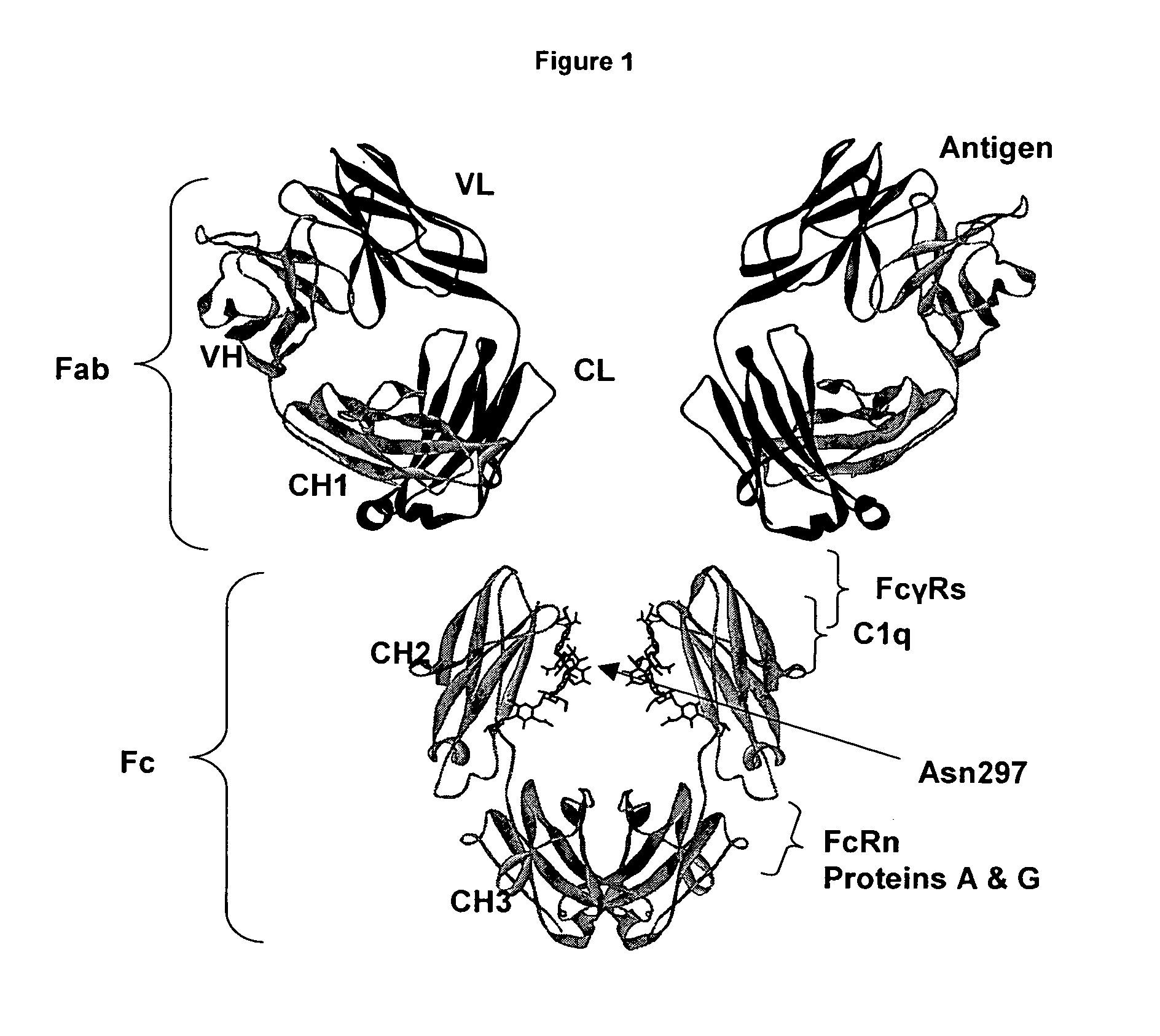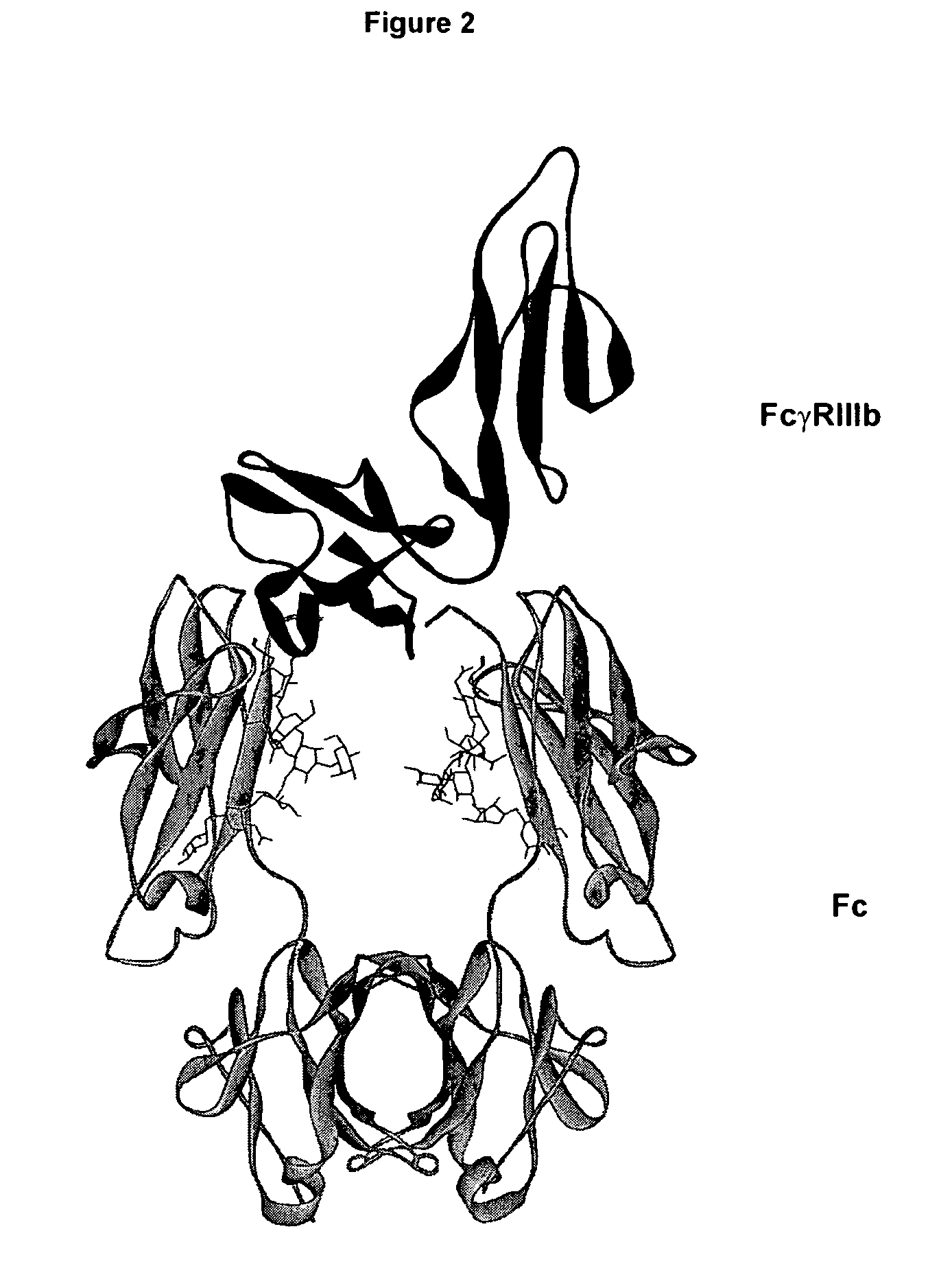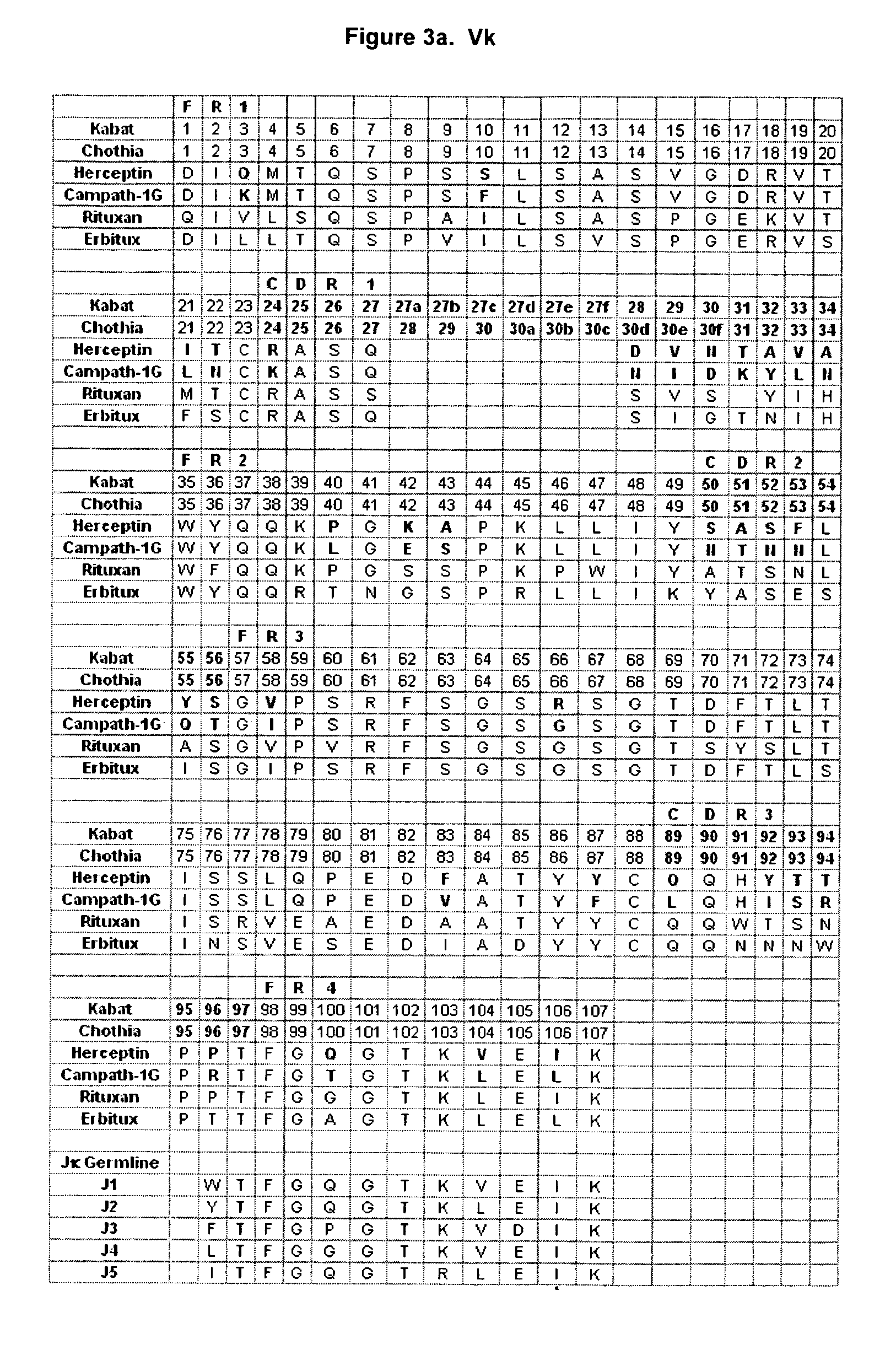Immunoglobulin variants outside the Fc region
a technology of immunoglobulin and variants, applied in the field of new optimized antibody variants, can solve the problems of suboptimal anticancer potency of significant deficiency of antibodies, another level of complexity, and the inability to optimize antibodies for clinical use, so as to reduce affinity, increase affinity, and reduce the effect of affinity
- Summary
- Abstract
- Description
- Claims
- Application Information
AI Technical Summary
Benefits of technology
Problems solved by technology
Method used
Image
Examples
example 1
Regions Outside Fc Can Impact Interaction of an Antibody with Effector Ligands
[0111] Essentially all research aimed at modifying antibody effector function has focused on the Fc region, intuitively because it comprises the binding sites for the FcγRs and C1q. The present invention provides support for a role of antibody regions outside of the Fc region that affect Fc / effector ligand interaction. An initial basis of support for a role of the variable region in antibody effector function is the observation that antibodies that differ solely in their variable region sequences mediate differing levels of effector function. There are a number of potential explanations for this result, the most reasonable of which have concerned the properties of the target antigen, including expression level, structural accessibility, and so forth. Data set forth in the present invention suggest, however, that the variable region can affect antibody / effector ligand affinity.
[0112] Binding affinity to h...
example 2
Engineered Variable Region Variants
[0120] As discussed, the flexibility between the Fab and Fc regions, as well as the differences between different antibody variable regions, may dictate that different antibodies have different Fab / Fc interactions. Thus although the available structures (1HZH, 1GY, and 1GT as described above) may provide information on the Fab / Fc interface, it may be imprudent to rely on this information as a definitive structural picture. Another important source of information is the structure activity relationship (SAR) data provided by different antibodies with different effector ligand affinities. For example, as described above, there exists some difference or differences between Campath and Herceptin in their variable regions that impact interaction of the antibody with FcγR. FIGS. 3a and 3b show alignments of the Campath and Herceptin VL and VH sequences respectively. These alignments highlight the differences between the two antibodies (shown in bold) tha...
example 3
Engineered JL, JH, CL, and CH1 Variants
[0127] In contrast to VH and VL sequences, the J segments encoding the C-termini of the variable regions and constant light and first constant heavy regions are more conserved among antibodies of the same class and among therapeutically useful antibodies. Thus residues within these regions that play a role in determining effector ligand affinity / specificity and effector function properties may be more consistent from antibody to antibody, and accordingly variants that alter these properties may be more generally applicable to therapeutically useful antibodies. In order to characterize the effector determinants in these regions of the Fab, and to generate variants that modulate effector ligand binding and effector function, substitutions were engineered using a computational, structure-based and sequence-based approach.
[0128] A set of computational structure-based design calculations were carried out to design point mutations that retain a sta...
PUM
| Property | Measurement | Unit |
|---|---|---|
| dissociation time | aaaaa | aaaaa |
| affinity | aaaaa | aaaaa |
| affinities | aaaaa | aaaaa |
Abstract
Description
Claims
Application Information
 Login to View More
Login to View More - R&D
- Intellectual Property
- Life Sciences
- Materials
- Tech Scout
- Unparalleled Data Quality
- Higher Quality Content
- 60% Fewer Hallucinations
Browse by: Latest US Patents, China's latest patents, Technical Efficacy Thesaurus, Application Domain, Technology Topic, Popular Technical Reports.
© 2025 PatSnap. All rights reserved.Legal|Privacy policy|Modern Slavery Act Transparency Statement|Sitemap|About US| Contact US: help@patsnap.com



